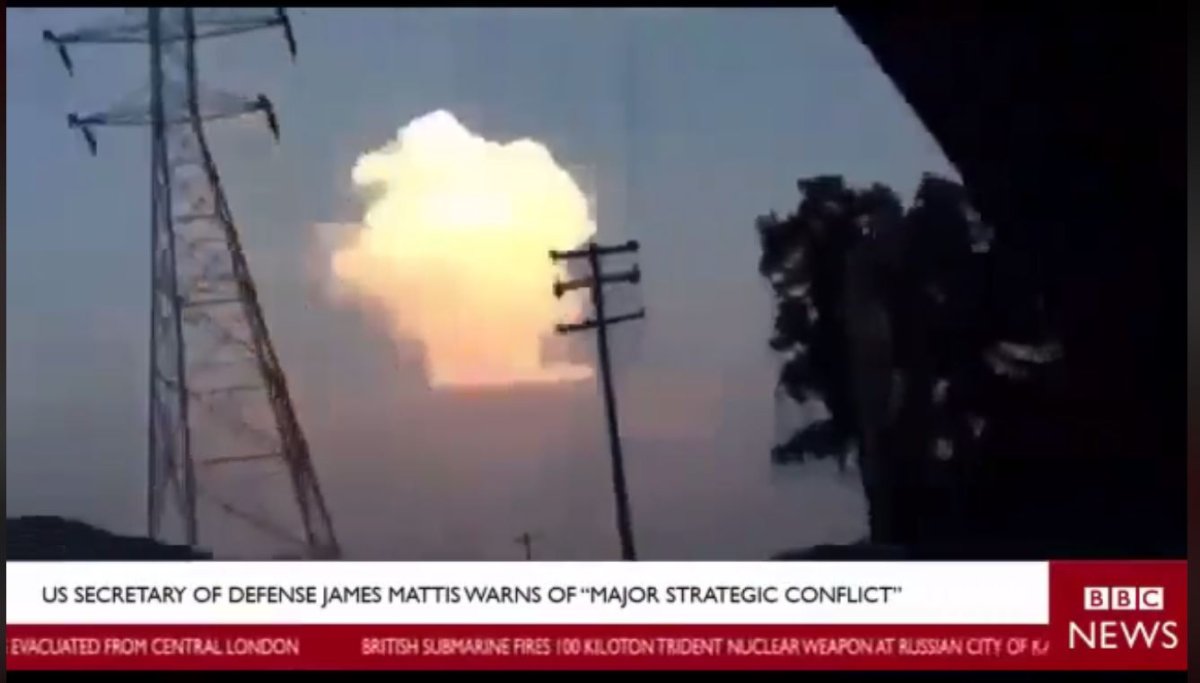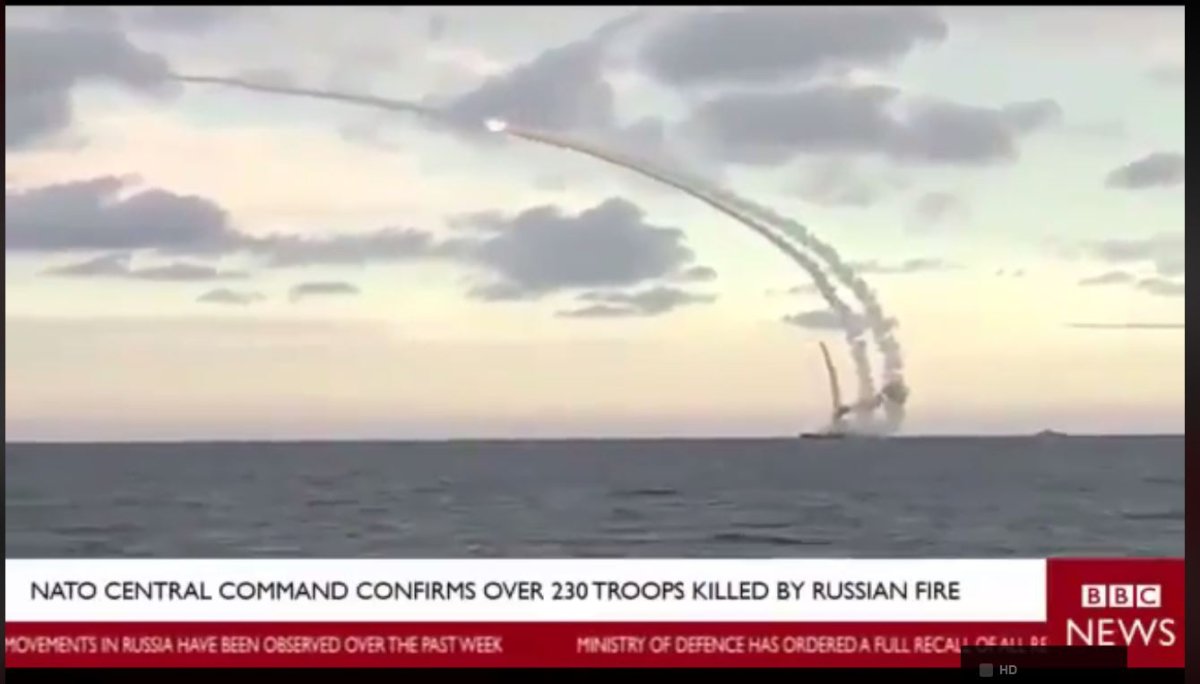Well, that escalated quickly.

The video purports to be a breaking news item from the BBC, reporting its biggest, and in the nature of these things, also its last story. In the meantime, though, it packs a good week’s worth of high-stakes international conflict escalation into a few action-packed minutes:
At 0:28, a sober, grey-suited anchor conveying concern but not alarm tells us of a naval clash with Russian forces off Latvia. (He does that BBC thing with his eyebrows.)
At 1:00 we see what we’re told are Russian warships off the coast of Finland firing impressive-looking missiles at – something …
- NDP to join Bloc in backing Liberals against non-confidence vote
- Ethics commissioner will not investigate Boissonnault over ‘Randy’ texts, says the matter is closed
- Macron and Trudeau will meet in Canada next week. What’s on the agenda?
- Via Rail CEO calls 10-hour train delay ‘unacceptable,’ says new evacuation plan in place
… and at 1:25 the Queen flees to “a secure location outside London” in a convoy escorted by motorcycles. (The careful viewer will notice that the convoy is going into Buckingham Palace’s gates).
At 2:05, “thermonuclear bombs of undetermined strength” explode at NATO headquarters in Brussels, captured by shaky, urgent mobile phone footage …
… but our anchor’s concern had still not given way to any kind of alarm at 2:10, as he told viewers of the “destruction of Mainz and the outskirts of Frankfurt,” though it might have off-camera, as the screen was taken over by what purported to be a British civil defence message for an incoming nuclear attack.
The warning, read in a voice even calmer than the anchor’s, said that radar had “confirmed as primary targets” pretty much every centre of population and naval base in the island: London, Manchester, Birmingham, Liverpool, Glasgow, Crewe (we wondered, but apparently there are strategic railway junctions there), Portsmouth, Cardiff, Newcastle, Leeds, Oxford, Sheffield, Plymouth, Edinburgh, Hull, Aberdeen, Derby, Coventry, Folkestone, Swansea, Leicester, Ipswich, Dover, Sellafield, Perth, Faslane, Cambridge and Newport.
Start as you mean to go on, I guess.

Get breaking National news
Since you’re reading this, and haven’t become a cloud of irradiated dust, obviously none of this happened.
The real BBC explains, (in a story titled No, the BBC is not reporting the end of the world): the video surfaced on YouTube this week but was removed, along with the account that posted it. As these things do, though, copies are circulating beyond control on WhatsApp and, as you’ll see below, Facebook.
(Real BBC also helpfully notes that the hoaxer hadn’t got the Beeb’s typeface quite right, and also that something as important as an escalation to nuclear conflict “would be mentioned on the website and would be corroborated by other news organisations.”)
Real BBC talked to the fake anchor, an actor named Mark Ryes, who said he’d been told that the video was being produced by a company named Benchmarking Assessment Group to test people’s reactions in a disaster.
We’ve embedded a version of the video below (emphasizing that it’s fake). If it vanishes, try this link.

In fake news news:
- Parents of children murdered in the 2012 school massacre in Newtown, Conn., are suing Alex Jones, who claims they fabricated their children’s deaths. The claims have led to constant harassment.
- Pornhub claimed it had banned fake porn videos involving celebrities, but Buzzfeed’s Charlie Warzel, who scours the site so you don’t have to, found dozens easily enough using the search term “deepfake.”
- It’s no secret that Facebook knows a lot about you and guesses more. And your health data is no exception, the Washington Post reports. “The lack of transparency, increasing interconnection of health and technology, and growing reliance on risk modelling in health care means that combining health- and medical-data sources to target patients could harm anyone who has a serious illness or the risk of developing one. The insurance industry uses social media intelligence and profiling to inform algorithms that automate pricing, claims handling and fraud detection. When health risks are understood as financial risks, contextual information from users’ digital profiles can be used against them to raise premiums or deny claims.”
- Facebook has promised to extend strict EU privacy laws to the platform, but Politico notices that it has been moving users outside the 28-nation bloc out from under its Dublin office, which falls under European law. Previously, all users outside the United States and Canada had been able to appeal to Irish privacy officials.










Comments